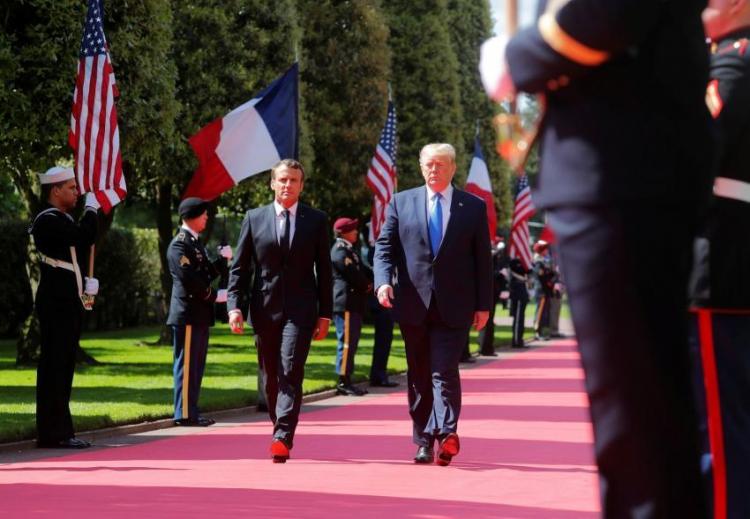North-Press Agency – Riyadh
The world’s countries mediate between Tehran and Washington in an effort to resolve the dispute between them, especially Japanese Prime Minister Shinzo Abe, as he planned to visit Iran next week, in which the US President Donald Trump had visited last week, hoping to play a role of mediation between Washington and Tehran, as well as the German Foreign Minister Heiko Maas, who will visit Iran next Monday, to work on the continuation of the nuclear agreement .
Earlier, the Sultanate of Oman had held talks with Iran, without disclosing any details about the meetings between the two sides.
Japan has recently abstained purchasing oil from Tehran because of US sanctions, yet, it is interested in stabilization of the Middle East, as most of its oil imports come from the region, besides, German Foreign Minister Heiko Maas will also visit Iran next Monday to work on the continuation of the nuclear deal.
German Foreign Ministry spokeswoman Maria Adebahr said on Thursday that Maas’s visit to Tehran was a “trip to the crisis” as Mas would also visit the UAE and Jordan.
Two options for countries involved in the Iranian file.
The first, to persuade Iran to negotiate on a new agreement with the United States, at the request of Trump, shared by Arab states and Israel.
The second option, which being worked on by the European countries, includes collective negotiations between the signatory states of the nuclear agreement and Iran, including the United States, in order to reach a separate agreement to limit the Iranian missile program, to become a part of the nuclear agreement
For his part, French President Emmanuel Macron hinted yesterday for four common goals between France and the United States, to prevent Iran from acquiring nuclear weapons, reducing the ballistic activities, and reducing its regional influence, as well as security and peace in the region.
It was remarkable that both Macron and Trump had called for new negotiations with Iran, but each had his own view, where Trump wants a new agreement on new terms and conditions on the nuclear deal as well as regional files on Iran’s influence in the Middle East. While Macron’s view means the return of the US to the nuclear deal, and the start of negotiations with Iran over the missiles’ program, and Israel’s security and the intervention in the Persian Gulf.
Trump had already criticized the nuclear deal, which was signed by former President Barack Obama, saying it was flawed because it is non-permanent, and does not cover Iran’s ballistic missiles program or its role in conflicts in the Middle East.
A compromise is unlikely among the American and European visions.
Iran calls on the signatory states on the agreement to find a trade mechanism that transcends sanctions on Iranian oil and the financial remittances sector, while Germany, the UK, and France are holding to the nuclear agreement, yet they find it very difficult to comply with its requirements. In addition to Russia’s pressure to protect the nuclear agreement and compensate Iran.
“The prospect of a nuclear agreement with Iran without establishing a mechanism to compensate Tehran for the losses caused by the US sanctions will be grim,” Russian Deputy Foreign Minister Sergei Ryabkov said on Thursday.
“If the remaining signatory states, which didn’t exit the deal, are able to develop an effective and practical model to compensate Iran, at least partly, by maintaining an acceptable level of oil exports, if so, I think the chances of maintaining the nuclear agreement will be increased as such”, RIA Novosti agency quoted Ryabkov as saying.
While in case the European don’t succeed in this option, to keep business transactions with Iran, then, a third option will emerge, Iran’s withdrawal from the nuclear deal.
It’s likely expected the issue of Iran’s nuclear agreement will be clearer during the meeting of the Joint Committee, which may be held in the second half of June 2019.
On the other hand, Donald Trump and the resigned British Prime Minister Theresa May last Tuesday stated: that they have common goals regarding Iran and that the US and the UK are determined to make sure that Iran does not develop its nuclear weapons program.

